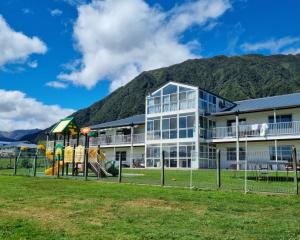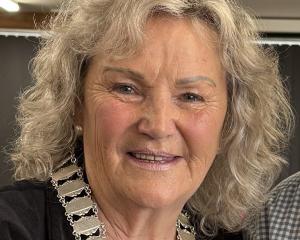Monorail developer Riverstone Holdings Ltd director Bob Robertson, of Wanaka, this week said Ngai Tahu Settlement Deed of Covenant relating to the Greenstone Valley area did not have any relevance to the monorail proposal and it was not relied on by the commissioner.
Mr Robertson echoed Graeme Ayres, delegate of the Director-general of Conservation, who recommended in his report to Conservation Minister Nick Smith the deed ''not be allowed and not be accepted'' for consideration to the monorail concession application.
''It's only related to private land, not Doc-held land, so that has been deemed not to be relevant in this case,'' Mr Robertson said.
''We knew it wasn't relevant when we looked at it at the time and maintained that, but of course some of our objectors have tried to use it as relevant.
''Now, it's been determined legally by the commissioner that it's not relevant and it will not be looked at by the minister.''
Dr Smith said concern the deed was a ''Get one Fiordland conservation land concession and get another concession free'' was ''an overstatement''.
The deed of settlement has a specific clause which ensures it would not be treated at any disadvantage to any other development which might be approved, he said.
''That is not as dramatic as it sounds in the sense that in the normal course of events you would expect the Government to treat Ngai Tahu on the same terms as any other applicant,'' he said.
''The clause is conditioned to say it has to be on the basis that the permitted development has ecological and recreational value of equal, or greater significance and that it would have no greater impact on the environment than the permitted development.''
A Ngai Tahu spokeswoman said there were deed restrictions placed on the tribe's use of its private property, including the need to get permission from the Minister of Conservation for a range of activities which most private landowners could do as of right, subject to usual resource consenting.
If the minister permitted a road or a rail link through the Snowdon Forest Conservation Area then the minister would not withhold consent for a proposed development of the same or similar kind on Ngai Tahu land, provided the Ngai Tahu development is on land which has the same or lesser values and has no greater impact on the land than the first proposal.
''It is also important to note that it is unlikely that there could be two proposals of similar nature that would be commercially viable,'' the spokeswoman said.
Some Ngai Tahu elders suggested in the early 1990s a gondola in the Greenstone Valley from Queenstown to Milford, although the idea was opposed, Ngai Tahu Property chief executive Tony Sewell, of Christchurch, said yesterday.
''When we settled the claim, what was agreed at the time was that if in the event that the minister gave approval to some other scheme through conservation land to get to Milford, he would not deny Ngai Tahu its chance,'' Mr Sewell said.
Dr Smith said he was ''some way'' from deciding on monorail approval and had not discussed the deed with Ngai Tahu.
Asked if Riverstone, or parent Infinity Investment Group, would consider a development partnership with Ngai Tahu in Fiordland, Mr Robertson said he would take the separate issue up with Ngai Tahu at some point if consent was approved by Dr Smith.
Mr Sewell said all the monorail proposers would need from Ngai Tahu would be approval to go over the land the tribe owns, ''and I doubt whether that would be a matter of much contention''.
''Everybody's looking to try and get a better route to Milford. One day somebody's going to achieve something,'' he said.











